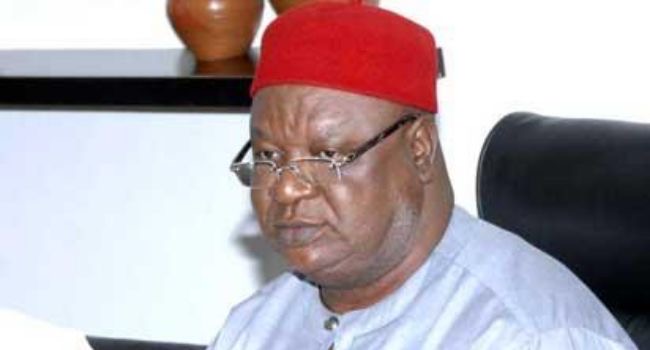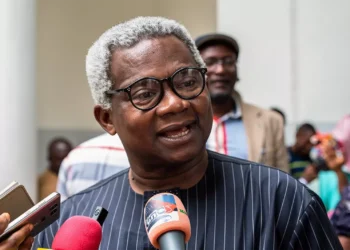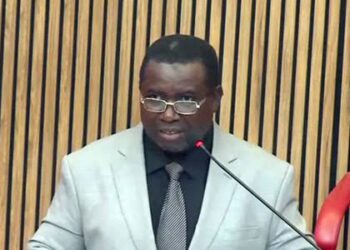On Thursday, former Secretary to the Government of the Federation, Senator Anyim Pius Anyim, emphasized that the roles of Secretary to the Government of the Federation (SGF) and Secretary to State Governments (SSG) are not formally established by law. This statement was made during the inaugural meeting of the Forum of the SGF and SSGs.
Anyim, who has also served as Senate President, clarified that Sections 171 and 208 of the 1999 Constitution only refer to these positions as roles that the President and governors have the authority to appoint. He explained that these sections do not establish the offices by law but rather mention them as part of the executive powers that leaders can utilize.

“The offices of SGF and SSG are not creations of law,” Anyim stated. “The Constitution mentions them only as roles that can be appointed by the President or governor in the exercise of their executive powers.”
Furthermore, Anyim pointed out that other sections of the Constitution, including the First Schedule, Part 2, Paragraph 10, and Section 209, only discuss these roles in relation to codes of conduct, without providing them with legal status. This raises questions about whether the omission of these roles from the Constitution was a deliberate choice or an oversight by the framers.
He urged for the legal establishment of these positions, arguing that it is necessary to protect and institutionalize the roles of SGF and SSG. “To ensure the effective functioning of these positions, they should be formally recognized and protected by law,” Anyim suggested. He proposed that the first step towards this would be to create legal statutes that officially establish the roles and responsibilities of SGF and SSG.

Additionally, Anyim recommended seeking advice from the Attorney General of the Federation to develop a common framework for coordinating activities across Nigeria’s three branches of government. He noted the current lack of an effective mechanism to synchronize the efforts of federal, state, and local governments, which could lead to inefficiencies and fragmented policy implementation.
SGF George Akume also addressed the importance of improving coordination among various government bodies. In his remarks, he highlighted that effective policy coordination is crucial, especially in the face of Nigeria’s complex socio-economic, environmental, and security challenges. “In these challenging times, the need for policy coordination and implementation is more critical than ever,” Akume said.
He stressed that the success of national agendas relies on how well federal, state and local policies are aligned and implemented.
Akume emphasized that achieving this alignment requires a deep commitment to collaboration and a shared vision.
“The effectiveness of our national strategies depends on our ability to work together and ensure that policies are not only well-conceived but also consistently put into practice,” he concluded. This collaborative approach, he noted, is essential for overcoming the diverse challenges facing Nigeria today.





































